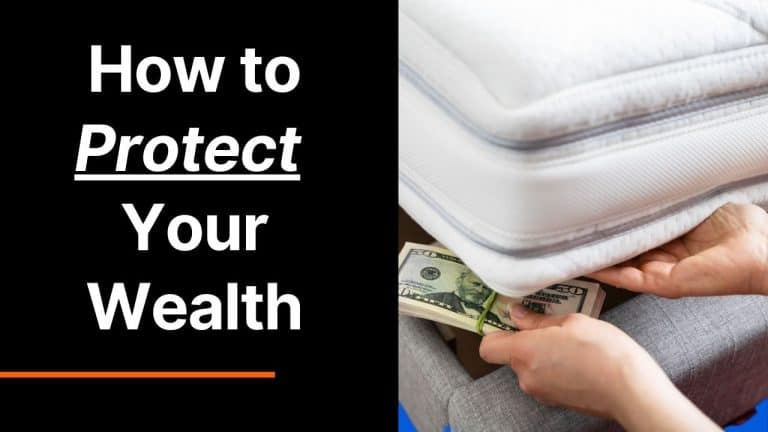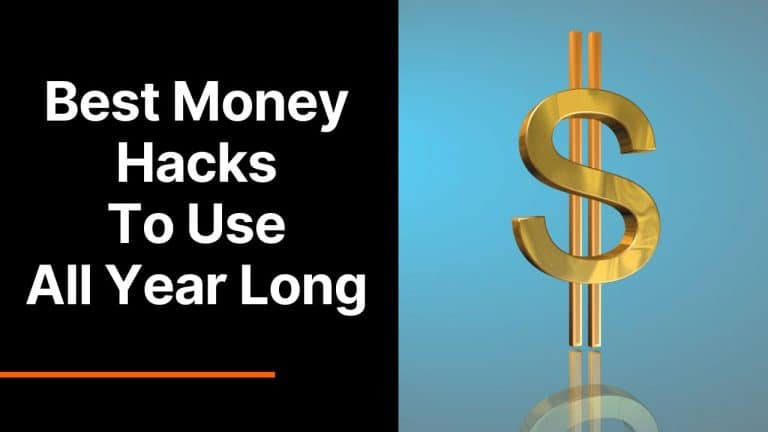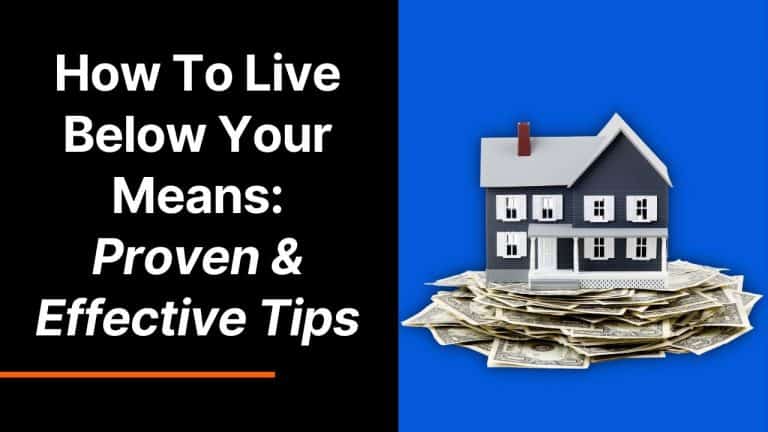Creative Ways to Pay Off Student Loans
Let’s face it – student loans SUCK. But don’t stress, there are a few creative ways to pay off your student loans.
Because if you’ve recently been a student, chances are you have at least one student loan you wanna get rid of ASAP.
And if you’ve been taking your sweet little time, guess what?
You’re going to have to pay this off eventually. So, you might as well pay it off as quickly as possible.
Keep reading to find out how you can pay off YOUR student loans fast.
First – Start By Assessing Your Finances
Details matter. And focus is essential in life, but it’s important to keep the big picture in mind too.
This is why your first step to paying off your student loans is to understand your general financial situation.
When Ready to Pay Off Student Loans, You Should Know:
- How much money you’re bringing in each month (expected
income ) - How much you have in your savings accounts
- What amount can you put towards your debt each month
- And finally how much debt do you have to begin with
Your Expected Income
Your expected
So, it’s important to be as realistic about it as you can. That said, if you have to make estimates, always make them on the cautious side.
If your
When are your peak-earning periods and when are your low-earning periods?
Ask yourself if you could budget based on your lowest-earning period and treat anything else as extra. If you can’t, you’ll need to make sure you put away money during your higher-earning periods.
Pretty much, your goal is to cover your regular living
And, you want to avoid getting into any situation where you’ll need to take out (more) credit. Because then, you’ll have to find even more creative ways to pay off your student loans.
And you can’t get out of the “deep hole of debt” if you keep digging a deeper and deeper hole while trying to climb out.
Your Savings and Insurance Policies
Cash savings (your emergency fund) and insurance policies both give you some protection against life’s ups and downs.
They make it less likely you’ll have to use credit cards to cover unexpected bills or shit you did not budget for.
This is important because of two reasons:
- You might not be able to get credit when you need it
- Using credit (the bank’s money) can become very expensive
Most people are probably going to need a combination of cash savings and insurance.
The reason is there’s usually a limit on how much money you already have saved. Or can save and set aside in a decent amount of time before paying off your loans.
Your emergency fund might be able to cover small
But it probably won’t be enough when you start out to cover medical, veterinarian bills, a new roof, or legal fees.
So if you don’t have enough in your savings or good insurance policies, you might want to prioritize fixing this. Especially before trying to pay off your student loans.
Remember, the less you can afford an unexpected bill, the more you need in your emergency fund or insurance coverage to protect you from it.
The Breakdown of Your Debts
If you have more than one debt, make a list of all your debts.
Note: Do what works best for you. This can be a simple word doc, excel sheet, your phone, or favorite app money tracking app.
But record, or write down what type of debt it is, the balance, and the interest rate.
Keep this list up-to-date as you make payments. It will act both as a way to track your progress and as a way to guide your decisions.
Decide Which Student Loans to Pay Off First
If you have more than one debt, then choosing the best order of repayment can make a huge difference in how quickly you can pay off your student loans.
The key point you need to understand is that the most effective way to pay back your student loans may be to pay back other loans first.
This may sound like the opposite of what you want to do, but an example might help explain it.
Say You Have Debts as Follow:
| Debt | Balance | Interest Rate | Cost |
| Student Loan | $100K | 5% | $5,000 |
| Pers. Loan | $25K | 10% | $2,500 |
| Credit Card | $10K | 20% | $2,000 |
Now say you have $1K spare to put towards your debts.
Where would you get the best value for your money?
To answer this question, adjust the balances by $1K and see how much money you’d save.
| Debt | Balance | Interest Rate | Cost |
| Student Loan | $99K | 5% | $4,950 |
| Pers. Loan | $24K | 10% | $2,400 |
| Credit Card | $9K | 20% | $1,800 |
When you actually do the math, you can clearly see you get the best overall deal by prioritizing the credit card.
In fact, you save four times what you would have saved by overpaying your student loan.
You save twice what you would have saved by overpaying your personal loan.
And even better, you can put the $200 you saved towards your remaining balance to save even more money.
| Debt | Balance | Interest Rate | Cost |
| Credit Card | $8.8K | 20% | $1,760 |
This is why it makes more sense to pay back your credit card first and your personal loan second.
This method, over the long run, will free up the most amount of money to pay off your student loans as quickly as possible. And it’s one of the most creative ways to pay off your student loans.
Getting Started and Other Creative Ways to Pay Off Student Loans
There are four key steps you can potentially take to pay off your student loans as fast as possible.
Here They Are:
- Try and Get public service loan forgiveness
- Improve Your Credit Score
- Increase Your
Income - Reduce Your
Expenses
You can do all of these steps individually. But you will, however, get the best results if you use a combination of them to repay your loans.
Public Service Loan Forgiveness:
If you work for a government organization or a non-profit, then it’s always worth checking if you’re eligible for public service loan forgiveness (PSFL).
It can really slash the costs of paying off your student loans.
That said, it’s not the best idea to rely on PSLF. Because as a government program, the qualifying criteria can be changed at any time.
The safest and best approach is to assume you’ll have to pay off your student loans the usual way.
That way if you do get help from the PSLF program, it’ll be a nice little bonus.
Improve Your Credit Score:
Your credit score is basically a measure of how well you look like you are handling credit and being a responsible spender.
It does not track or care about how well you save or invest your money.
But there are a few reasons why it’s useful. And when it comes to paying off your student loans, the main one is it has an effect on how much you pay for credit. Or how much you pay to borrow money.
If you can improve your credit score, then you may be able to transfer existing balances onto lower-cost or lower interest products. Like those provided by student loan consolidation companies.
This can go a long way to speeding up how quickly you can pay off your student loans.
The key point to remember is that it takes a lot longer to build up a credit record than it does to damage it. And that’s why you should always make it a priority to pay all your bills IN FULL and ON-TIME no matter what.
Missed payments, late payments, and underpayments can all seriously damage your credit score, even if they’re negotiated.
Increase Your Income :
You can only reduce and cut so much shit from your everyday living
After all, you need to have some fun.
So after you cut back on however much you can, there’s an unlimited number of opportunities to increase your
Just be realistic on how much you can cut back. Then figure out how fast you can start.
And don’t forget, you’ll almost certainly have to pay taxes on any extra
Become a Freelancer
When you become a gig-worker or freelancer, you’re working for someone else, just not as an employee.
This means you get the short-term benefit of making money fast. But someone else gets the long-term benefit of your work at a cheaper cost to them.
Usually, because they don’t have to provide you with any health insurance, benefits, etc.
Start a Business Or Create Your Own Side-Hustle
Setting up your own side-hustle or business can mean putting in a lot of hours without a lot (or any) return in the early stages.
In fact, you may even find yourself paying other people to do tasks that require special skills you don’t have.
If, however, you can push past this, you’ll get the full, long-term benefit of your work. But once again you should NOT expect to make any money fast like you would with freelancing.
Invest In Yourself
There are a lot of different ways you can invest.
Two of the most common ones are
The key point to note here is that
And the returns, are definitely NOT guaranteed.
There are many stories of people losing money in real estate and the stock market
And even when they do start seeing some returns or gains on what you invested, it can take a very long time.
That said, picking a good index fund (like VTI) and letting your money sit and grow one share at a time will make you a huge winner in the long run. Think 10+ years.
BUT… this won’t pay off your student loans fast.
Investing in yourself and learning new skills can help you pay your loans off way faster.
Reduce Your Expenses to Pay Off Student Loans:
In theory, there are all kinds of steps you can take to reduce your expenses. But in practice, most of them boil down to one of five basic steps.
And these are THE most creative ways to pay off student loan debt.
Why?
Because you can modify them to fit your specific situation and needs.
Step #1) Use What You Have Before Buying Anything Else
This might sound like I’m stating the obvious, but the amount of food waste generated every year shows it isn’t.
We can all learn a lesson from Julius in the TV show “Everbody Hates Chris”.
Eat your leftover. And before you go shopping, open up your refrigerator and cabins to see what you have.
Step #2) Learn About Cost Per Use
Cost per use basically means you take the upfront cost of a product or service and divide it by the number of times you use it.
It’s a great way to get a realistic view of how much a product or service is really worth to you.
Step #3) Plan for Predictable Expenses
Think about when you’re going to need to replace physical items or update pay for your subscriptions.
Give yourself plenty of time to research the best deal and commit to doing so. You’ll save quite a bit of money doing this.
Step #4) Avoid Long-Term Contracts as Much asPossible
If you’re really sure you’ll use a service over the long term, then an extended contract may make sense.
A lot of the time, however, the savings you would get are outweighed by the lack of flexibility.
If you pay for something and they charge you for the entire year but you only use one once or twice, it’s not something you should be signing up for.
Step #5) Learn as Many Basic Skills as You Can
Learn to cook your own food (from scratch). And try growing your own ingredients if you have the time.
Learn to repair your own clothes instead of always going to the tailor.
Learn to do minor home improvement projects.
Do things yourself and save the professional help for when you really benefit from it or can’t go without it.






